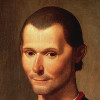“ The man whose wants are few is dependent on but few people, but those who constantly confound our vain desires with our bodily needs, those who have made these needs the basis of human society, are continually mistaking effects for causes, and they have only confused themselves by their own reasoning. ”
Jean-Jacques Rousseau, Emile, or On Education (1762). copy citation
| Author | Jean-Jacques Rousseau |
|---|---|
| Source | Emile, or On Education |
| Topic | society desire |
| Date | 1762 |
| Language | English |
| Reference | |
| Note | Translated by Barbara Foxley |
| Weblink | http://www.gutenberg.org/cache/epub/5427/pg5427-images.html |
Context
“we see that it is in proportion to the development of these passions that a man's relations with others expand or contract. It is not so much strength of arm as moderation of spirit which makes men free and independent. The man whose wants are few is dependent on but few people, but those who constantly confound our vain desires with our bodily needs, those who have made these needs the basis of human society, are continually mistaking effects for causes, and they have only confused themselves by their own reasoning.
Since it is impossible in the state of nature that the difference between man and man should be great enough to make one dependent on another, there is in fact in this state of nature an actual and indestructible equality.”
source


